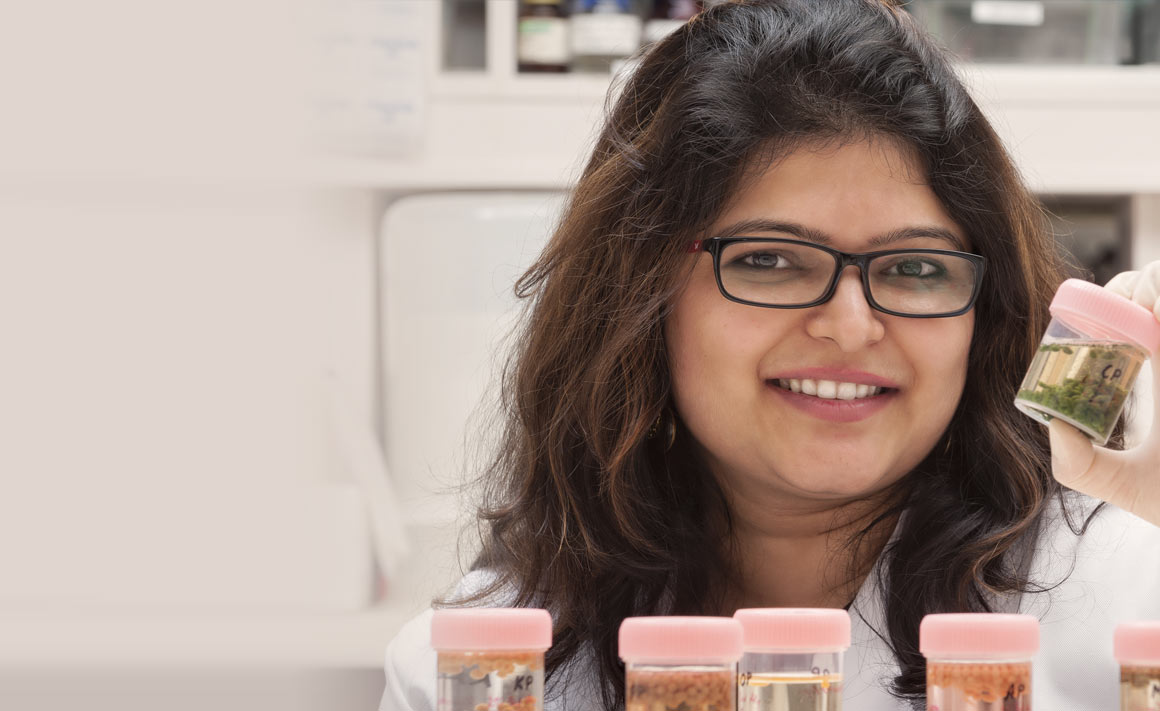 Monday 8 January 2018 9:02am
Monday 8 January 2018 9:02am
The potential of fruit and vegetable peels to remove heavy metals from water could revolutionise water purification around the world.
The ability to remove heavy metals from water using fruit and vegetable peels has been known for some time, but PhD student Risha Jasmine Singh is modifying the peels to achieve better results and seeking to discover which peels are better at removing which metals.
The toxicology student explains that it is not simply a matter of putting a piece of orange or potato peel into some water and soaking up the naturally occurring lead, copper and other contaminants in the water.
“You need to convert the peel into a form that is the most effective, easy to use, and easy to filter out,” Singh says.
“I am processing the peel – reducing the particle size and increasing the surface area – and then loading it onto beads that can be put into water and can absorb the heavy metals. The idea is to maximise the purification levels.”
Singh says that there are economic and environmental benefits from the process. “At an industrial level – and at a domestic level – fruit and vegetable peel is a waste product and discarding it is a problem.”
She says that techniques for removing heavy metals from water do exist, but they are expensive. “I would like to be able to develop a low cost 'biosorbent' that would make the removal of heavy metals from water more affordable, particularly for developing countries.”
She envisages people being able to take some of the beads from a container, put them into water for a period and then filter them out before using the water.
Singh, who previously studied in her home country of India, says that one of the reasons why she has chosen to research the topic is because there are regions in India in which water supplies are contaminated with heavy metals, such as arsenic contamination in West Bengal groundwater.
She acknowledges that her process transfers rather than eliminates the heavy metals; part of her research involves trying to figure out what to do with the heavy metal loaded beads.
Professor Rhonda Rosengren (Department of Pharmacology and Toxicology) and Dr Candace Martin (Department of Geology) are jointly supervising Singh's research.
Funding
- School of Biomedical Sciences' Dean's Bequest Fund